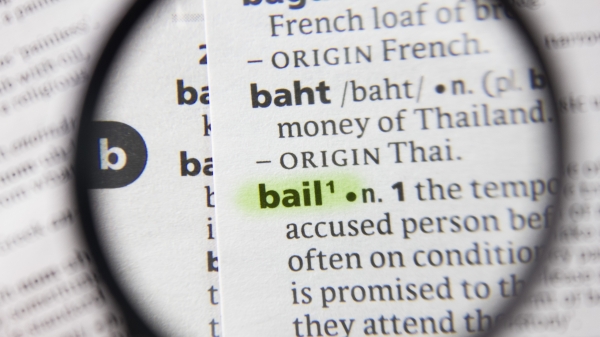Each year, we gather with family and memory, repeating rituals that promise continuity in a world that often feels fractured. That act matters. Gratitude, practiced deliberately, can steady a society. But Thanksgiving retains its moral force only if it is large enough to hold the full truth of who we are, how we arrived here, and what has been done in this nation’s name.
The holiday’s origins are often softened into myth. The reality was harsher. America began in fear and uncertainty as much as hope and cooperation. Survival—not harmony—defined its earliest chapters. What followed was a nation built through dispossession and forced labor, exclusion and exploitation, often justified by law, sanctified by religion and defended as destiny. Indigenous peoples were erased from lands they had occupied for generations. Millions were enslaved. Immigrants were welcomed when their labor was needed and despised the moment they were seen as competition or threat. These were not detours from the American story. They were central to it.
And yet people endured.
That endurance—more than any founding document—is the moral engine of the American experiment. Those denied power refused to disappear. Those excluded by law built lives and institutions beyond its protection. Those treated as expendable organized, resisted, rebuilt and forced the nation to confront the distance between its stated ideals and its lived reality. Freedom here was not handed down cleanly from parchment and speeches. It was demanded, negotiated and wrestled into existence by people who understood that justice rarely arrives on its own.
Progress did not flow from innocence. It came from struggle. From friction. From clarity rather than denial.
That history matters now because it is being deliberately narrowed.
The powerful have always shaped official memory. History has never been neutral. What distinguishes this moment is not power itself, but the erosion of restraint—the growing willingness to discard complexity, abandon civic shame, and treat cruelty as proof of conviction. In earlier eras, injustice was wrapped in euphemism. Today, it is increasingly defended openly, even celebrated, as authenticity.
What we are witnessing is not simple forgetfulness or nostalgia. It is a purposeful effort to reconstruct the nation through a destructive myth: America as a white, Christian country, pure at birth and righteous by inheritance. In that telling, slavery becomes incidental. Indigenous displacement disappears. Immigration matters only when it flatters the present. Dissent is recast as betrayal. History is acceptable only when it affirms power.
This impulse is not new. We have been here before. After Reconstruction, false histories were written to justify stripping Black Americans of political voice. During past waves of immigration, fear regularly disguised itself as patriotism. Religious certainty has long been used not as moral discipline, but as an instrument of social control. Each time, a simplified past was weaponized to excuse present cruelty.
What is different now is not who holds power, but how openly it is wielded—and how few limits are acknowledged. The collapse is not ideological alone. It is moral. Restraint is cast as weakness. Complexity is treated as threat. Shame has been replaced by grievance.
Over decades, some have drifted toward absolutism, substituting identity for civic responsibility and suspicion for compromise. That drift has now hardened into choice. The state is increasingly treated not as a shared civic instrument, but as a tool to enforce a singular vision of national identity. The aim is not unity through shared obligation, but conformity through myth.
The consequences are no longer abstract. Refugees—people fleeing war, repression, famine and collapse—are cast as invaders, despite having arrived by paths familiar to nearly every American family story. Some came seeking religious freedom. Others fled violence. Many crossed oceans chasing opportunity. Some came to exploit land and wealth already inhabited. Millions were brought here in chains. All of it is America. The story does not become stronger by selecting only the convenient chapters.
What makes this moment especially bitter is the role of forgetting. The struggles of Irish, Italian, Polish, German, Jewish and other immigrant communities have been compressed into inevitability, their hardship smoothed away, their exclusion erased. By forgetting their own fragility, some now deny it to others. Amnesia becomes justification. Distance from suffering becomes moral certainty.
Thanksgiving should interrupt that forgetting.
It is not a celebration of purity or dominance. It is a reminder of survival amid uncertainty—of dependence as much as independence. It tells us that nothing about this country was inevitable: not its stability, not its liberties, and certainly not its progress. Every expansion of freedom was resisted before it was embraced. Every moral advance was once condemned as dangerous.
The strength of the American experiment has never been perfection. It has been the ability—often reluctant, often delayed—to confront failure and widen the promise anyway.
That promise was never sameness. It was pluralism: the binding together of people from different places, beliefs and histories into a shared civic project governed by law rather than lineage. When that promise is replaced by myths of purity, the nation grows brittle. When suffering is erased from memory, cruelty becomes easier to repeat.
Thanksgiving, if it is to mean more than habit, must hold both gratitude and grief. It must honor endurance without denying harm. It must resist comforting lies in favor of a harder truth: America was not born innocent, but it was born aspirational.
Giving thanks, then, is not passive. It is a responsibility—to remember fully, to resist the erasure of those who built this country through pain as well as hope, and to defend an American identity rooted not in blood or myth, but in the ongoing, unfinished work of justice.
At a table set for Thanksgiving, honesty is the only tradition that still asks something of us.
















































